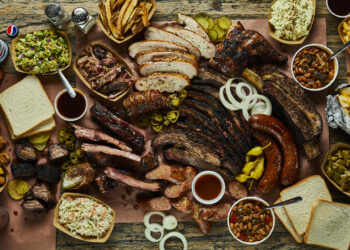 We’re off for the holidays and will see you in 2015. In the meantime, a look back at 2014:
We’re off for the holidays and will see you in 2015. In the meantime, a look back at 2014:
This year The Scholarly Kitchen passed the 5.3 million all time views mark, and cracked 25,000 comments. We’re past our early phase of exponential growth, but should end up with just under 1.5 million views for the year, passing last year’s total by about 30,000. We’ve passed 9,000 Twitter followers, although search engines remain our top referrers, outpacing Twitter by a greater than 10 to 1 ratio. Top search terms are almost all some combination of “PLOS”, “PLOS ONE” and “Impact Factor” (though “eLife Impact Factor”and “David and Goliath Malcolm Gladwell” made the top 10 as well).
Given those search terms, it’s not surprising that our most read articles are discussions of PLOS ONE’s Impact Factor and a review of that Gladwell book. The enormous continuing interest in Impact Factors, even for journals which disavow them, made Phil Davis our most read author this year, given his regular contributions on the subject.
Our top 10 most read articles for 2014:
- PLOS ONE Output Falls Following Impact Factor Decline
- Book Review — “David and Goliath” by Malcolm Gladwell
- PLOS ONE Output Falls 25 Percent
- The Jack Andraka Story — Uncovering the Hidden Contradictions Behind a Science Folk Hero
- The Mystery of A “Partial” Impact Factor
- Ikea Offers the Latest Breakthrough in Reading Technology
- Why Are Publishers and Editors Wasting Time Formatting Citations?
- Who Can Rival Amazon?
- Reinventing The Impact Factor for the 21st Century
- The Editor — A Vital Role We Barely Talk About Anymore
* Michael Clarke’s post from December of 2013, The End of an Era for Academia.edu and Other Academic Networks? would have come in at number 3 on the list had it been published in 2014.
Discussion
4 Thoughts on "A Look Back at 2014 in The Scholarly Kitchen"
It was a Phil-Kent showdown, with Davis prevailing by a nose for the highest “impact factor” at SK in ’14. Ironic? You decide…. Thanks to all the SK authors for their contributions, and happy holidays.
Any chance we could see the next ten?
11-20 as follows:
University Presses: “Under Fire” or Just Under the Gun (Like the Rest of Us)?
What Motivates Reviewers? An Experiment in Economics
The Arms Race in Journals Publishing Heats Up
The Size of the Open Access Market
How Important Are Library Sales to the University Press?
Your Question for the Day — What Is “Peer Review”?
How Much Does It Cost eLife to Publish an Article?
To Share or not to Share? That is the (Research Data) Question…
What Societies Really Think About Open Access
What Library Directors Are Thinking: An Ithaka S+R Survey Report



